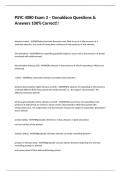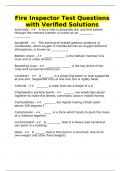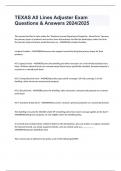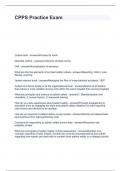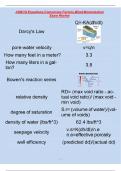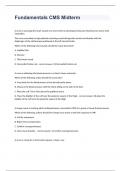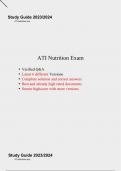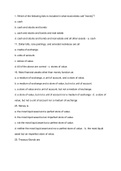Exam (elaborations)
PSYC 4080 Exam 3 – Donaldson Questions & Answers 100% Correct!!
- Course
- Institution
stimulus control - ANSWERwhen behavior becomes more likely to occur in the presence of a particular stimulus, as a result of having been reinforced in the presence of that stimulus discriminations - ANSWERwhen responding gradually begins to occur only in the presence of stimuli correlated with r...
[Show more]
